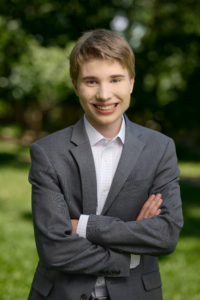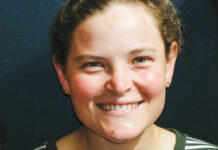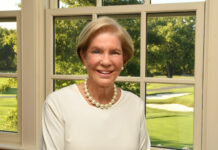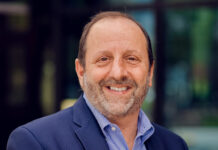Ella Gorodetzky | Special to JT
Matthew Casertano, 17, founded Teens Helping Seniors in 2020 with the hope of aiding senior citizens in getting essential items during the pandemic, as well as bringing together the younger and older generations. That effort won him a Diller Teen Tikkun Olam Award of $36,000 for building a better world.

The recent high school graduate’s next great endeavor: studying at the California Institute of Technology in Pasadena.
What is Teens Helping Seniors?
Teens Helping Seniors is an organization which I started at the very beginning of the coronavirus pandemic. I noticed that my grandparents, even though they were trying to isolate as much as possible, they still had to leave their apartment buildings to go and get food and medication.
I didn’t want them to have to pick between getting their necessities and protecting their personal safety. And so I offered to pick up and deliver those items to them. I found out that my friend Dhruv Pai had been doing the same thing for his grandparents. This made both of us realize that there are many senior citizens out there who might not have grandchildren or relatives who could do their shopping for them, and so why not connect teenagers with those senior citizens.
What was the process of founding Teens Helping Seniors as a nonprofit organization?
Initially, we did not have any plans on making this an official organization. It was just us and we had a couple friends from school volunteering, but the demand was clearly extremely high. Once we got our first press coverage, we started getting emails from people all across our state and even in other states and we had to expand the organization.
So we had to make it official, because in order to expand, we knew we would have to give teenagers volunteer hours because a lot of people would want to have some recognition for the work they were doing. And so we had to become a nonprofit.
We became a chapter-based organization, because we realized that it would not be smart for us to run the entire organization from Montgomery County and we should give people who are in different areas starting chapters or people who are doing deliveries in different areas the ability to make decisions as to what is best for their community.
What is your Jewish background?
I was raised in a mixed family — my mom is Jewish but my dad is not, and neither my parents were particularly religious.
As a kid, I would go to my grandmother’s for Friday night and go to synagogue Saturday morning. Around age 9, I decided to stop going to synagogue. I didn’t really feel it was benefiting me. I didn’t find any meaning in it.
But then around age 14, I started thinking about this more and I realized that there’s a tradition that’s existed for thousands of years of Judaism. At that point I was also learning a lot about genealogy, because I became very interested in that, and I saw that so many of my family members on my mother’s side had been killed in concentration camps. I realized that clearly their Jewish identity was something very important to them, and I’ve at least felt some type of a very small obligation to learn more about it. I started doing just that, and I eventually fell in love with it and started attending synagogue again.
Now I go to my grandmother’s every Friday night and I stay all the way through Saturday night to observe Shabbat there every week and observe all the Jewish holidays. Right now, most of the actions I do, like praying every day — except for on Shabbat — I’m doing that on my own. I look forward to going to college where I’ll be able to be part of a community.







